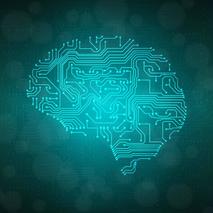Research Projects
|
Global Competencies and Digital Fluency
If and how is teaching 21st century skills currently implemented in pre-service education across Canada? How effective is professional learning and development for in-service teachers on 21st century skills?
The Ontario government released a new framework for education called 21st century competencies in 2016. This framework sought to integrate new competencies around technology, creation, and innovation into K-12 education across Ontario. The current project examines how 21st century competencies are being incorporated into preservice and in-service teacher education by using Let’s Talk Science’s Canada 2067 Roadmap as a framework for evaluation. |
Computational Thinking across the CurriculumWhat is computational thinking (CT)? How can educators assess whether or not students are thinking computationally? Should we teach students to use CT across disciplines?
This research investigates how to define and assess CT in classrooms. We explore the ways in which thinking like a computer scientist can be applied across different disciplines in the curriculum. |
Technology-Enhanced Design Thinking
How can the technology we have and will have in the future impact design thinking processes?
Technology-enabled design thinking holds great promise for synthesizing two types of 21st century skill areas: learning and innovation; and information, media, and technology (Partnership for 21st Century Learning). The overall goal of this collaborative project is to conduct efficacy research on scalable professional development for teacher education candidates (TECs) on technology-integrated design thinking, to be extended to K-8 students. |
Learning in MotionDoes physical activity help learners regulate their emotions? Are exercise bikes a fad in today's classrooms, or does research support the use of this equipment?
This line of research focuses on the implications of incorporating stationary bicycles to increase self-regulated learning in classrooms. In learning to teach children who are part of this digital world, teachers must address 21st century learning by harnessing the positive aspects of technology and assisting students to manage the consuming nature of digital technologies and Web 2.0 applications. |
Teaching with Technology
|
Is technology an essential 21st century learning tool? What do effective technology-enhanced teaching and learning look like? What pedagogy best supports technology?
Digital technology is a part of every aspect of our lives--business, finance, entertainment, communication, friendships, education, etc. Children in our schools are part of the digital generation who has never known life without the internet and multimedia content. The potential of technology supports a framework of learning skills that include communication, collaboration, creativity, and critical thinking. "Put your phone down!" is a statement you may have heard in the classroom more recently. As cell phones and laptops become widely used by students of all ages, understanding the impact of digital technology on teaching and learning is more important than ever. |





